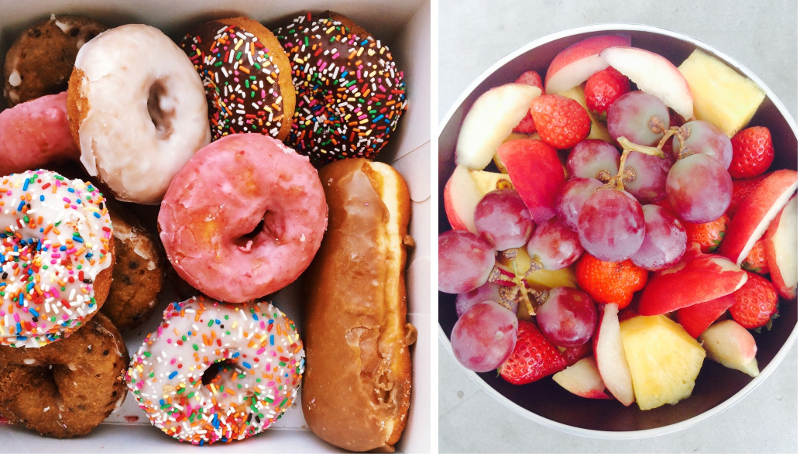Everyday Money Traps – And How to Avoid Them
I’m not talking about spending your entire salary on designer shoes and bags every month (then you have some serious issues) but the small things that we spend money on because “we have earned it”, “we deserve it” or “we need it”. The small things that seem insignificant but that will in the end still add up to big sums. You sit there in the end of the month with an empty valet and without a clue to where all your money went, because you know you didn't buy anything expensive nor did you do anything that should have eaten up all your money.
I am far from being financially savvy, which is also the reason to why I wanted to write this article; to share with you five things that I find to be the biggest money traps in everyday life, and also what you can do to avoid them. Let’s be smart, and at the end of the month, keep more than just receipts in our valets.
1. Nails
Luckily in Beijing most things are fairly cheap, like getting your nails done (of course depending on where you go). I have had normal manicures (not gel) done for 30 kuai as well as 80 kuai, so let’s make it easy and say that one costs around 50 kuai. That is not a lot of money, but, if you do it maybe once a week (depending on quality polish and how fast your nails grow) you will spend about 200 kuai a month on manicures. If you instead would by nail polish (around 30 kuai) and do your nails yourself you can instead save those 200 kuai. I like getting my nails done; the result is better than mine and it feels good and luxurious, but do I need it? No, not really. I could very well do it myself, it is just a matter a laziness.
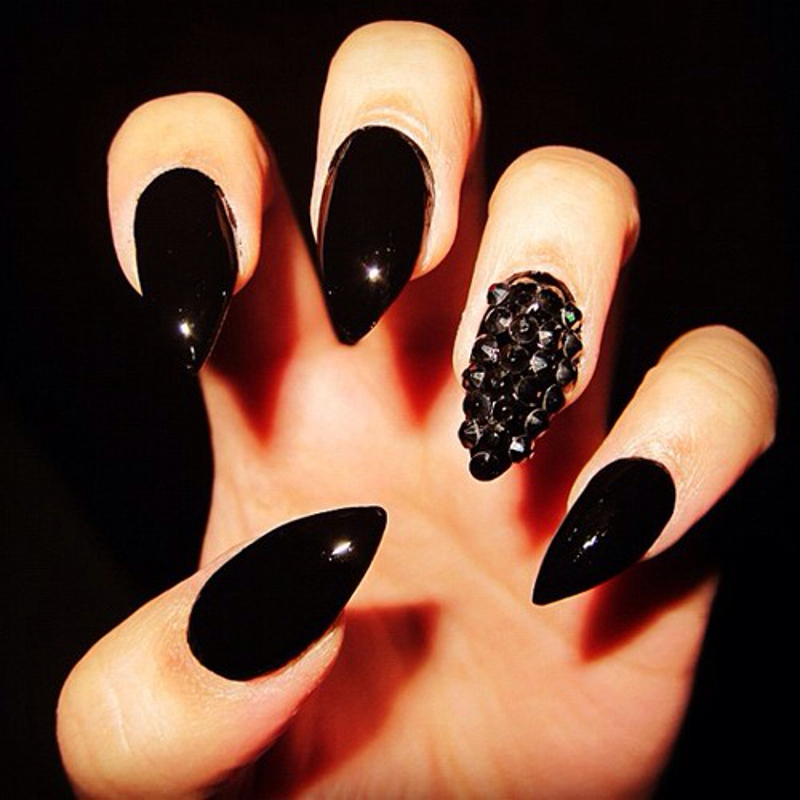
2. Fancy Coffee vs. Thermos Mug
I view coffee as a necessity, right up there with air and Wi-Fi, so that is something I would never completely get rid of. But, you can always make smarter choices when it comes to how much you spend on your coffee. Let’s say that every morning before work you go to Starbucks and by a tall Americano, that is around 20 kuai, which in 5 working days adds up to 100 kuai. So in one month you are pretty much spending 400 kuai on coffee.
I know that if you, like me, really enjoy coffee you will not be satisfied with instant coffee, but to both spare your taste buds and your valet, buy a bag of grounded coffee (around 60 kuai, depending on brand) and brew it yourself at home. Make it in the morning while you are getting ready and just pour it into a thermos mug right before you head out. And if you like latte, just bring a little bit of milk with you, heat it up in the microwave at work and pour into your cup. Voilà!
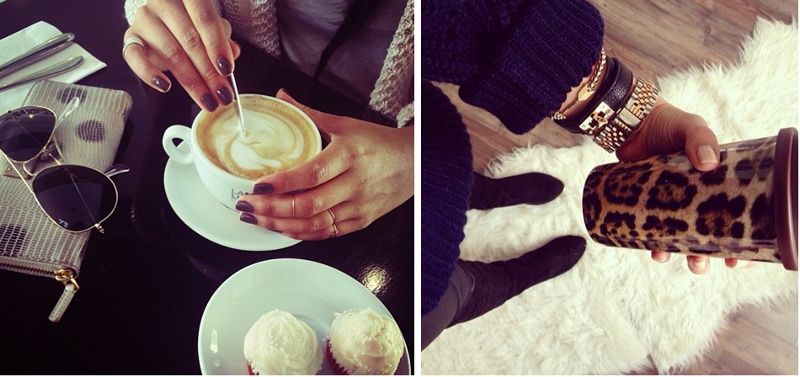
3. Taxi vs. Subway
Before you get into a cab, ask yourself this question; “Why are you taking a cab?” If your answer is something like “I’m tired”, “my feet hurt”, “I want to sit down” or "I don’t want to ride a crowded subway". Then close the car door, turn around and walk to the closest subway stop. But if your answer is “The subway is closed at this time”, “I am drunk and need to get home” or “I am in urgent need of a hospital.” Please, proceed.
I can catch myself many times taking a cab because I don't feel like taking the subway, but with the traffic in Beijing taxi is almost never faster than subway, not to mention much more expensive. Even though the price for subway has increased, it is still much cheaper than taking a taxi, because no matter how far you go you will always have to pay at least 13 kuai.
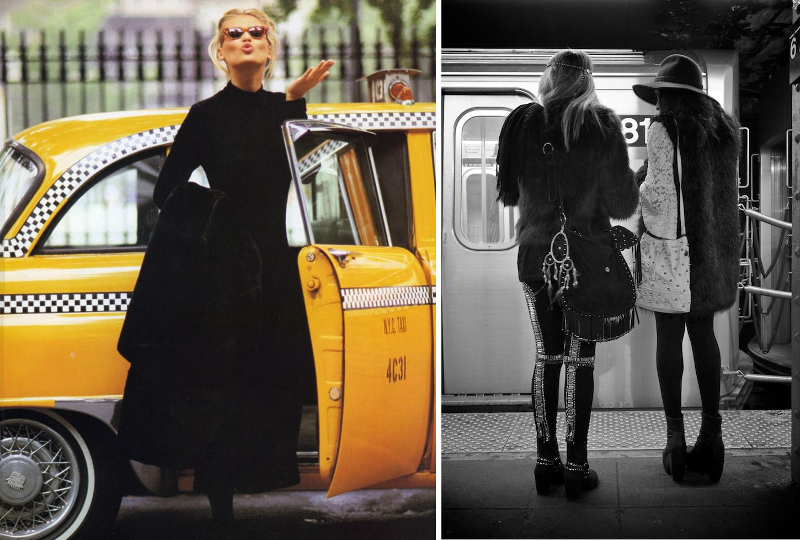
4. Eating out vs. Homemade
If you work long days and get home late in the evening you will not be overly keen to cook when you can just pick up your phone and order dinner. Most of us also eat breakfast and lunch out. We rather sleep a few extra minute and buy breakfast on our way to work than get up 10 minutes earlier to make a sandwich. But eating out all 3 meals can get expensive very fast, of course we all have to eat, but we can control how much we choose to spend on food.
For instance, when it comes to breakfast, it does not take long to make a sandwich or pour some milk and cereal into a bowl. And maybe if you can’t eat early in the morning, why not put some breakfast item in the fridge at work (most offices' have one) so every day when you get to work you can make yourself something to eat.
When it comes to lunch you might have to eat out (especially if you are not into cooking) but an easy way to save money is to buy a lunch where you can control the price and amount of food. I like to get salad from the supermarket where I work, and this salad is the one you can pick yourself, which means I can control how much I would like to get and in turn control how much I will pay. If you eliminate the cost for breakfast and control the amount you spend on lunch ordering food for dinner will not be too big of a blow to your budget.
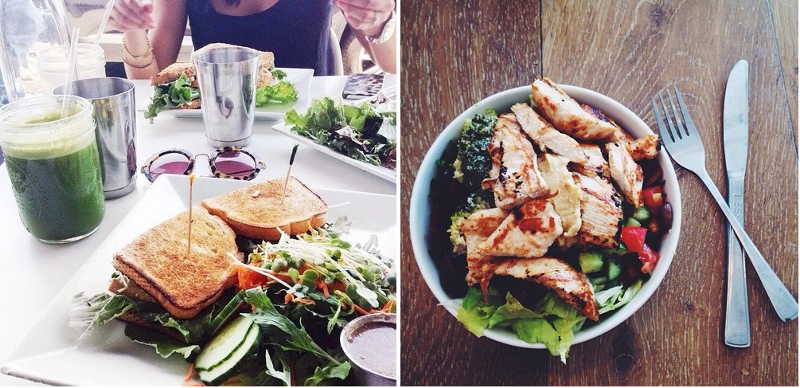
5. Cravings vs. Health
When it starts getting close to 4pm, our blood sugar is running low and we are starting to get tired it is very easy to want to pop out for a snack of some sort. But if you do this very often it will not only quickly affect your money, it will also affect your health. Yes, we all have cravings, a sometimes we just have to give in and go get that Snickers, but doing so every day is a dangerous habit. So before giving in ask yourself this question; “Why do I want this and what will it add to my body?”
Cravings are mostly mentally, your body (and valet) does not want nor need that cookie, muffin, doughnut or snickers. So to avoid the 4pm trip to Starbucks try to always bring a healthy snack to work, like fruit. For a 20 kuai cookie at Starbucks you can buy bananas to last you the whole work week. Not to mention a banana will not only lessen your hunger it will also give your body vitamins, compared to a doughnut that gives you nothing but a huge sugar kick, a empty space in your valet and a bad conscience.
